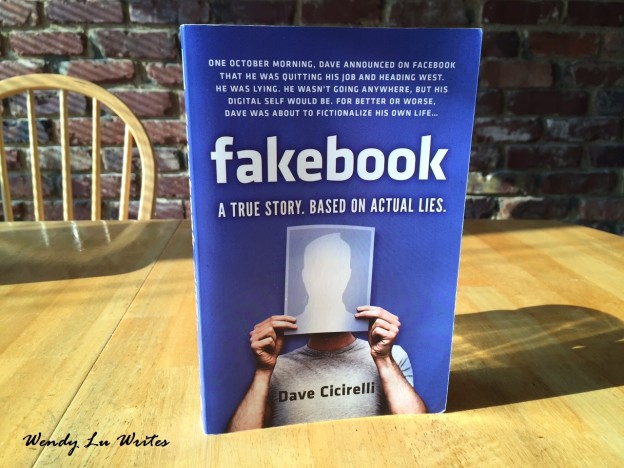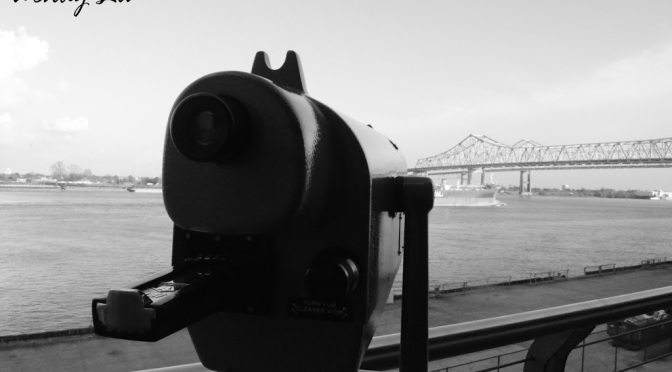#DailyWings: “Social media has given us this idea that we should all have a posse of friends when in reality, if we have one or two really good friends, we are lucky.” -Brene Brown
Some of you may know that I spent the better half of my senior year in college writing an honors thesis on social media personas. The idea of online personalities has always intrigued me, ever since I discovered Neopets and realized I could build character profiles not only for the virtual pets, but also for myself as an online user.
In this millennium, it’s easier than ever for people to customize an identity for themselves through blogs, Facebook, Twitter and other online social tools, even cloaking certain sides of who they are (which may or may not be a subconscious act). In this way, social media acts as a “veil.” My thesis was about the bridge between bloggers’ online social media personas, the way their readers (“followers”) perceive them to be and how they view themselves.
I’ve been asked before, “Where did you get the idea for this thesis?” While my majors/genuine interest in journalism and psychology kept me interested in the topic for nine months, the idea itself started cooking after I randomly met a young nomad on campus the spring before senior year and then, around the same time, learned of a memoir called “Fakebook.”
My book review today, as you can probably tell, is on this memoir by Dave Cicirelli, whom I had the opportunity to interview for a feature Q&A on my diyMFA books column, New Spin. I’d already read a few chunks of the book for thesis research, but it wasn’t until a few months ago that I read it all the way through, from beginning to the end. This time, instead of reading it like a frantic thesis writer desperate for more sources, I read it for pure leisure.
The premise is all in the title: “Fakebook: A True Story Based on Actual Lies.” Dave Cicirelli is a 20-something with two identities: the one that he constructed from thin air (and maybe a little Photoshop) and then plastered all over Facebook, and the real one where he’s a graphic designer working at a PR firm in New York. The problem is, he has to keep the latter mum so everyone believes his fabricated life.
The idea of glamorizing Dave’s life starts out as a joke between him and a few old friends. But with a single push of the “Post” button on Facebook, Dave suddenly has everyone and their aunt thinking he’s quit his stable job at the PR firm to trek across the country. Next thing they know, he’s toilet-papered a horse and buggy in Amish country, which consequentially leads to him being held hostage by the Amish family and then falling in love with the daughter. Sounds bizarre, but then again, it’s Dave Cicirelli – a guy who’s notorious for pushing the envelope and loves the thrill of pulling off ridiculous pranks.
He keeps up this front for six months. Six months of constantly making sure he is in two places at once. He’s forced to avoid friends back home, social events and any potential risks of getting photographed (you know where those end up). At one point, someone actually recognizes him in New York and, before she can ask how he’s there when he should be several states away, Dave runs.
Without even realizing it, Dave has turned himself into a social experiment.
Here’s what I think after reading the book all the way through: “Fakebook” is hilarious. The memoir reads easy, as the narrator Dave talks to you like a best friend from high school, someone you’d go out for drinks with on a Friday night. As readers, we not only get to enjoy the stories he conjures up for Fakebook, but we also simultaneously see what goes on inside his head as he mulls them over. Additionally, we get a glimpse of his Facebook friends’ reactions, as the book is sprinkled with replicas of Facebook wall posts, comment threads and even emails. These graphics – elements of new media – contribute a visual dimension to the book that enhances the reader experience.
Here’s the thing, though: You’ll enjoy “Fakebook” if all you want is entertainment. It’s not a research paper. Dave’s social experiment might have been innovative in 2009, the year that it took place, but there’s nothing new about human behavior and the social media world in this book that we didn’t already know in 2013 when it was published, much less today. Apart from Dave’s personal insight into his social media experiment, we don’t learn anything new about, say, narrative persuasion or what compels people to engage with certain online posts.
From a reader’s perspective, I thought there were a few sections that read slower than others. There were too many details about Dave’s romances, which were fun but didn’t add much to the overall Fakebook plot, and too few details about subplots that were far more interesting, like Dave’s Secret Foil (the mystery person who claims to know his secret).
All of that being said, I enjoyed “Fakebook” a lot. Obviously, or it wouldn’t have inspired my honors thesis. Thanks to the nature of my career as a journalist, I’m always plugged in and trying out different social media tools and studying online branding. A social media hoax like Fakebook is pure fuel for my fascination with identities, and I’ll never get tired of reading books and articles about social media. Any recommendations?
Overall Rating:












What a hoot. If I had been Dave, I would not have hidden from anyone. Let everyone in on my clandestine pretend world. I wonder if that would have upped the ante in the comments and follows. Anyway, it sounds like a good read.